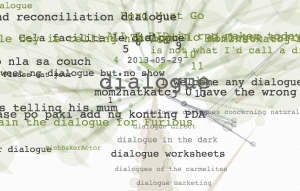I realized the other day that I have been blogging for 10 years, as of June 11th, which seems like an anniversary. You can see my Welcome message here. The WordPress Dashboard tells me I have 1,921 posts which means I have posted approximately once every two or three days. I confess there are times when I think I should just wrap it up and stop the blog as it feels like one more thing I have to do. On the other hand Theoreti.ca has been useful to me as a place where I know I can find my own notes (as long as I can get to the net). I think I’ll keep on going a bit more.

Theoreti.ca is not the first blog I started. Back in 2001-2 when blogs were the new thing (for me) I actually tried starting one a couple of times. The problem was that they were aspirational – I started blogs hoping I would live up to the aspirations for witty commentary I set myself. Needless to say, after a few posts I stopped writing and the blogs thankfully disappeared. Theoreti.ca worked because I set out only to keep research notes. I set myself a low bar – write stuff that you might find useful later. The second post is an example of that – a list of possible “intersections of mathematics, computer science, philosophy and multimedia” that could make for a nice lecture series or conference. Not a lot of context, no wit, and not that useful to anyone but me.
The question I ask myself now is whether blogging of this sort is out of date. Others tweet such short notes and WordPress is used more for web sites that need a news or essay function.
Perhaps I’ll keep going on a bit more, just in case blogs come back like bell-bottom jeans.


